Filter by
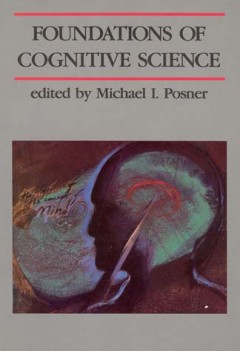
Foundations of cognitive science
"A Bradford book."What is cognitive science? Foundations of Cognitive Science answers this question in a way that gives a feeling for the excitement, ferment, and accomplishments of this new field. It is the first broad treatment of cognitive science at an advanced level.Complete and authoritative, Foundations of Cognitive Science covers the major architectures; provides background in philosoph…
- Edition
- -
- ISBN/ISSN
- 9780262281805
- Collation
- 1 online resource (xiv, 862 pages) :illustrations
- Series Title
- -
- Call Number
- -
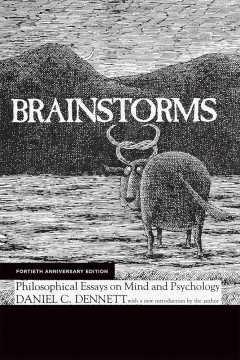
Brainstorms :philosophical essays on mind and psychology
When Brainstorms was published in 1978, the interdisciplinary field of cognitive science was just emerging. Daniel Dennett was a young scholar who wanted to get philosophers out of their armchairs -- and into conversations with psychologists, linguists, computer scientists. This collection of seventeen essays by Dennett offers a comprehensive theory of mind, encompassing traditional issues of c…
- Edition
- 40th Anniversary edition.
- ISBN/ISSN
- 9780262343725
- Collation
- 1 online resource
- Series Title
- -
- Call Number
- -
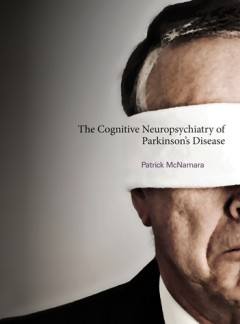
The Cognitive Neuropsychiatry of Parkinson's Disease
Patrick McNamara examines the major neuropsychiatric syndromes of Parkinson's disease in detail and offers a cognitive theory that accounts for both their neurology and their phenomenology.OCLC-licensed vendor bibliographic record.
- Edition
- -
- ISBN/ISSN
- 9780262298360
- Collation
- 1 online resource (x, 231 pages) :illustrations
- Series Title
- -
- Call Number
- -

Boundary Objects and Beyond: Working with Leigh Star
Susan Leigh Star (1954--2010) was one of the most influential science studies scholars of the last several decades. In her work, Star highlighted the messy practices of discovering science, asking hard questions about the marginalizing as well as the liberating powers of science and technology. In the landmark work Sorting Things Out, Star and Geoffrey Bowker revealed the social and ethical his…
- Edition
- -
- ISBN/ISSN
- 9780262331012
- Collation
- 1 online resource (1 PDF (ix, 548 pages)).
- Series Title
- -
- Call Number
- -
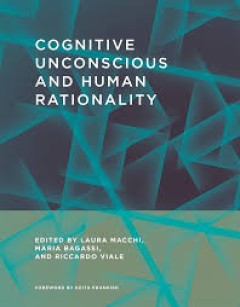
Cognitive Unconscious and Human Rationality
"This volume contributes to a current debate within the psychology of thought that has wide implications for our ideas about creativity, decision making, and economic behavior. The essays focus on the role of implicit, unconscious thinking in creativity and problem solving, the interaction of intuition and analytic thinking, and the relationship between communicative heuristics and thought. The…
- Edition
- -
- ISBN/ISSN
- 9780262335119
- Collation
- 1 online resource (xvi, 385 pages) :illustrations
- Series Title
- -
- Call Number
- -
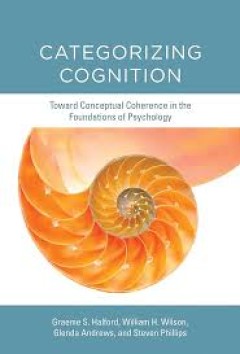
Categorizing Cognition: Toward Conceptual Coherence in the Foundations of Psy…
A proposal for a categorization of cognition based on core properties of the constituent processes that integrates theory and empirical findings across domains.OCLC-licensed vendor bibliographic record.
- Edition
- -
- ISBN/ISSN
- 0262320703
- Collation
- 1 online resource (xiii, 358 pages) :illustrations (some color)
- Series Title
- -
- Call Number
- -
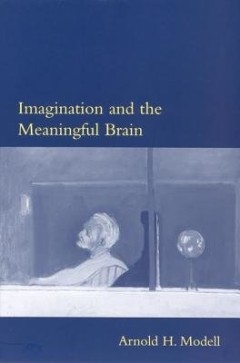
Imagination and the meaningful brain
"A Bradford book."The ultimate goal of the cognitive sciences is to understand how the brain works--how it turns "matter into imagination." In Imagination and the Meaningful Brain, psychoanalyst Arnold Modell claims that subjective human experience must be included in any scientific explanation of how the mind/brain works. Contrary to current attempts to describe mental functioning as a form of…
- Edition
- -
- ISBN/ISSN
- 9780262280044
- Collation
- 1 online resource (xiv, 253 pages)
- Series Title
- Philosophical Psychopathology
- Call Number
- 150 MOD i
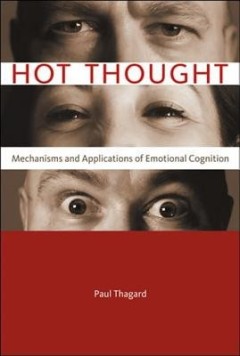
Hot thought :mechanisms and applications of emotional cognition
"A Bradford book.""In Hot Thought, Paul Thagard describes the mental mechanisms - cognitive, neural, molecular, and social - that interact to produce different kinds of human thinking, from everyday decision making to legal reasoning, scientific discovery, and religious belief, and he discusses when and how thinking and reasoning should be emotional." "Thagard argues that an understanding of em…
- Edition
- -
- ISBN/ISSN
- 9780262284844
- Collation
- 1 online resource (xii, 301 pages) : illustrations
- Series Title
- -
- Call Number
- -

Modularity in knowledge representation and natural-language understanding
"A Bradford book."The notion of modularity, introduced by Noam Chomsky and developed with special emphasis on perceptual and linguistic processes by Jerry Fodor in his important book The Modularity of Mind, has provided a significant stimulus to research in cognitive science. This book presents essays in which a diverse group of philosophers, linguists, psycholinguists, and neuroscientists--inc…
- Edition
- -
- ISBN/ISSN
- 9780262071055
- Collation
- 1 online resource (ix, 427 pages) :illustrations.
- Series Title
- -
- Call Number
- -
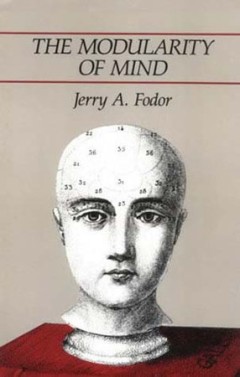
The modularity of mind :an essay on faculty psychology
"A Bradford book."This study synthesizes current information from the various fields of cognitive science in support of a new and exciting theory of mind. Most psychologists study horizontal processes like memory and information flow; Fodor postulates a vertical and modular psychological organization underlying biologically coherent behaviors. This view of mental architecture is consistent with…
- Edition
- -
- ISBN/ISSN
- 9780262315920
- Collation
- 1 online resource (145 pages)
- Series Title
- -
- Call Number
- -
 Computer Science, Information & General Works
Computer Science, Information & General Works  Philosophy & Psychology
Philosophy & Psychology  Religion
Religion  Social Sciences
Social Sciences  Language
Language  Pure Science
Pure Science  Applied Sciences
Applied Sciences  Art & Recreation
Art & Recreation  Literature
Literature  History & Geography
History & Geography